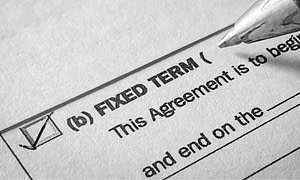Equal opportunity employment (referred to as EEO) refers to the concept and practice of making sure that all individuals, regardless of their background or traits, have an equal chance to engage in the workforce and are treated fairly and without discrimination in all aspects of employment.
This concept aims at raising diversity, putting a stop to discrimination, and creating a more inclusive and equal workplace.
Anti-discrimination
Employers in Australia are legally obliged to not discriminate against employees or job seekers on the basis of protected traits such as age, race, gender, disability, sexual orientation, religion, and more. Discrimination can occur at any stage of the employment process, including recruitment, hiring, promotion, and termination.
Diversity & inclusion
Employers are encouraged to create diverse and inclusive workplaces where people from different backgrounds and with various perspectives are valued and celebrated. This can lead to more ideas and change in the workplace.
Equal pay
Ensuring that employees are paid equally for equal work is an important part of EEO. The idea of equal pay for equal work applies to all genders.
Reasonable accommodation
Employers may need to make reasonable changes for employees with disabilities to ensure they have an equal opportunity to perform their job tasks.
Harassment & bullying prevention
Employers should have policies and procedures in place to prevent and address workplace harassment and bullying, which can create a hostile environment and hinder equal opportunity.
Affirmative action
Some firms may enact affirmative action programs to try to increase the voice of underrepresented groups in the workforce. These programs aim to address historical disadvantages and promote greater diversity.
Reporting & compliance
Employers are usually required to report on their EEO practices and respect for the anti-discrimination laws. Government agencies such as the Australian Human Rights Commission oversee and enforce these rules.
Education & training
Many firms provide education and training programs for employees to raise awareness about EEO concepts and promote a culture that is fair and inclusive.
It's important to note that equal opportunity employment is not just a legal requirement in Australia; it is also considered a best practice for firms that want to create a positive and productive workplace. Employers who focus on EEO are more likely to attract and retain diverse and talented staff.
If you're interested in learning more about this topic, check out Indeed's guide on understanding equal opportunity employment. Additionally, you can click the button below to read our post on the challenges linked with being a mature age candidate.





















